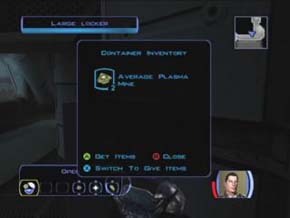
Featured Blog | This community-written post highlights the best of what the game industry has to offer. Read more like it on the Game Developer Blogs.
Miss-able Collectibles: I want it but not so bad I'll start the game over again
Why do games include miss-able collectibles and is there a way to mitigate their impact?

Collectibles are a cornerstone of gaming. Whether they be coins, weapons, lore, trinkets, characters, weird floating orbs or what have you they are all important game design tools. They encourage the player to explore and pay attention to the world around them by rewarding them for finding those out of the way places, as well as giving the designer a smaller token of progress they can scatter around to drive the player's attention in order to guide them through levels.

They can also give the game a way to power up the player or grade the player on how well they did beyond the simple pass/fail of getting though a level.
They come in all shapes and sizes but there is one attribute of a collectible that I want to focus on today: if it is miss-able. Permanently miss-able, by which I mean you would have to load an earlier save or restart the whole game in order to get the thing you missed.
Now, heart on my sleeve, I don't like miss-able collectibles either as a player or a designer. They aren't a thing that ruin games for me, but if they are included it will bother me. I'll try to fairly point out why many think they can work, or why sometimes are necessary, but I do want you to understand that I am making those points while still disagreeing with the practice in general so please try to compensate for my bias here.
I don't like them because when I start playing a game I don't go into it with a mind set of "I'm going to 100% this thing". I might be excited to play a game but I always go into a game with a degree of hesitancy, or at the very least a strong desire to get to the part of the game where it becomes interesting (which often takes far longer than it should but that is a different essay). The first hour or so of me playing a game is often me pushing forward through a game while waiting for something to catch my attention and make me care enough to become truly engaged with the game. Hopefully something grabs me but then over the course of the game there is a gradual build up (hopefully) of engagement and if it is good enough there will come a movement where I think to myself "I'm in. I want to see everything this game has to offer. I want to 100% it." Once that happens the question is, does that moment come before or after I miss a miss-able collectible? Because if that moment happens after I missed something I'm a bit fucked and that definitely informs my enjoyment of the rest of the game.
Ori and the Blind Forest is a game that I had this exact experience on. It is a really good game that I was really enjoying and so I thought I would try to 100% the game. I rarely feel the desire to do so as often in games getting all the achievements is more of a chore then a joy, but I really liked this game and was super pumped while playing it. But I had missed something and now the area it was in is filled with lava.

This essay is only going to talk about the one part of the game I didn't like. I still really love this game.
If I had known I was gonna want to 100% the game I might of grabbed a guide, if I could find a spoiler-free one (but even those have mild spoilers just through their structure, it is no fault of their own), as a kind of check list to make sure I had gotten everything before moving past a point of no return. But I never start out a game with 100% in mind and the urge doesn't usually strike me at all while playing a game and so doing this ahead of time would be a waste of time. Furthermore having a checklist to mark off while playing would of made it harder to get so into the game that I would want to have that checklist. When playing a new game first and foremost I want to be able to just play the game and not think about if I'm properly min/maxing when I'm not sure I care about the game yet.

It is important to point out that not everything that can be missed really matters long term if you miss. If you miss a weapon but a stronger one is going to come along shortly then it doesn't matter to much if you miss it. If you miss a collectible that counts towards an achievement or is something that matters long term though then that is a different story entirely.
I could of started over if I wanted everything, that was always an option. I was willing to put in a great deal more effort to 100% this great game but I was not willing to start over from square one, especially in a game that didn't have much variation in terms of how it is played. There is certainly a little variation in how the game can be played because of the upgrades, but it is not like Mass Effect where you have completely different abilities and can make different story choices while traveling with different companions. Starting over would be doing nearly the exact same thing all over again.
There is certainly an argument for making things harder or more challenging in order to increase the satisfaction of completion and, while I don't always buy this argument, I will certainly accept in the case of optional achievements. But it remains that I played and enjoyed Ori less than I could have because of this mechanic, and that is going to hold true for a great number of players which is something that should not be easily discounted.
I do understand why they made some stuff miss-able. There is the previous point about making the game harder, though perhaps not more challenging, but beyond that there is the very clear reason: they wanted to destroy areas for story or dramatic reasons. They want to change the areas around the player as they go though them. They wanted to have the ability to create massive set pieces that crumble and burn, that collapse as the player desperately tries to get away. They didn't want to undo that damage right afterwards, they wanted it to feel like the things that were happening in game were a big thing that mattered to the game world in a permanent way. They couldn't just immediately undo these things just so the player could go and grab that glowy orb they missed.
Story reasons like this are a common reason why things are miss-able. Your characters travel to a completely different part of the world and so, quite reasonably, don't have access to the starting area. There plenty of easily imagined story reasons why a game can't or shouldn't let you go back to old areas but even given that there is a couple things you could do to make unique items not miss-able.
First thing you could do is not include collectibles (or at least unique collectibles) in those areas. If an area is only temporarily unavailable (perhaps because in the story that area is occupied by the evils but later on you liberate it) then sure include them there but don't put any out of reach for the late game (when you are right about to go fight the final boss). Now missing something doesn't matter because you can't miss things that matter and you can still destroy areas. Unfortunately this makes those areas that become off limits pretty lame. I mean I started this essay talking up how great collectibles are and those areas where you don't get any are going to suffer for the lack. That sucks.
You could make the items available for pickup in several different places, one of which is always find-able. If they didn't get it in spot A and that area is gone now then they can pick up that item in spot B that is still around. Or perhaps buy-able in a shop if not found (assuming the game has shops and a currency). Problem is that then you are giving the player fewer collectibles and if the player is grabbing everything then there is going to be a lot of blank placeholders later on in the game where those missed items would go. It also losses out on the uniqueness of finding that item in it's special place. At this point it is less like you are finding the items and more like they are finding you.
Devil May Cry games may hold the answer as they have always used a mission structure for their games. You don't load a save that is at a certain point so much as load a book and get to choose what chapter you want to play. Did you miss something on Mission 15? That is fine you can play that mission again and it doesn't break the story to have that part of the game played over again because the game isn't contextualizing the player character being there as the character going back there but rather as this is the first time the character has done this. You are essentially re-reading the chapter.

The mission structure also lets them grade the player which gives the player a gauge of how well they did and gives them something more to strive for, so increased replayability.
This can work for a game like Devil May Cry as it is a very self aware game that isn't above breaking the 4th wall, but Ori though wants to feel less overtly "gamey" and so it is understandable that it doesn't want to engage in this kind of framing. Also the grades can undercut the seriousness of what the character does during the mission, good job killing your brother on this mission? A+.
They could just let that freedom only be available after the game has been completed, in a New Game+ mode. They would have to remove some of the abilities that you had acquired to prevent you from being able to do things out of order but letting the player loop though the game would be a nice way to let the player get the stuff they missed without having them having to start from scratch and get everything in the game all over again. A second go though where they only have to get the things they missed. Unfortunately Ori doesn't do that, in fact once you complete the game it doesn't let you play from that file ever again. I'm not sure why, perhaps they just didn't have the resources to devote to such a project (it would require some doing) and they didn't consider it important enough, or at least less important then other things. It is an understandable flaw, it wasn't made with infinite resources, but at the same time that doesn't mean those flaws should be ignored as they still negatively effect the player experience.
Miss-able collectibles are totally understandable in many games given story or level requirements, that doesn't mean I have to like them though. Ori isn't the only game I've been amped to try and max out only to have my enthusiasm dampened by the reality that I would first have to abandon everything I've done so far. If we must have them though, and it appears I will have to suffer though their existence, can we at least make them not appear in the first couple hours of gameplay so that I can decide if I like a game before I realize I will have to start over if I want to go whole hog on it?
I mean, do you like them?
Read more about:
Featured BlogsAbout the Author(s)
You May Also Like













